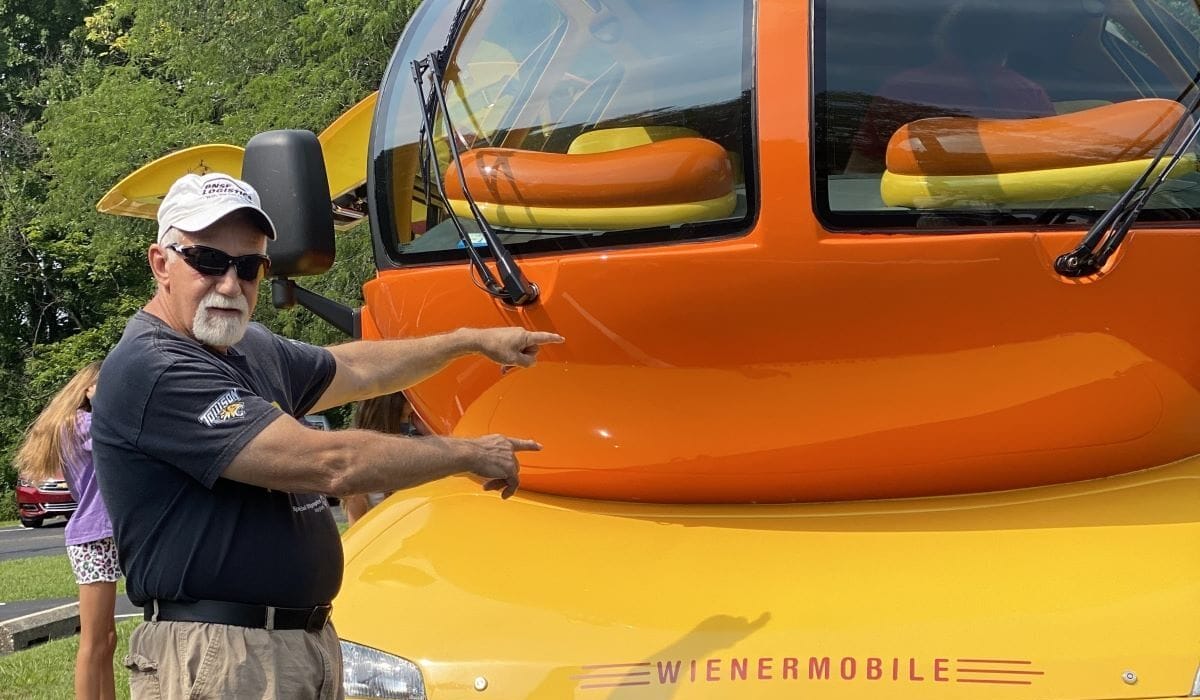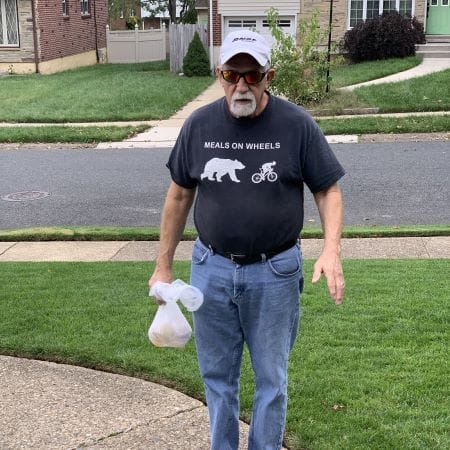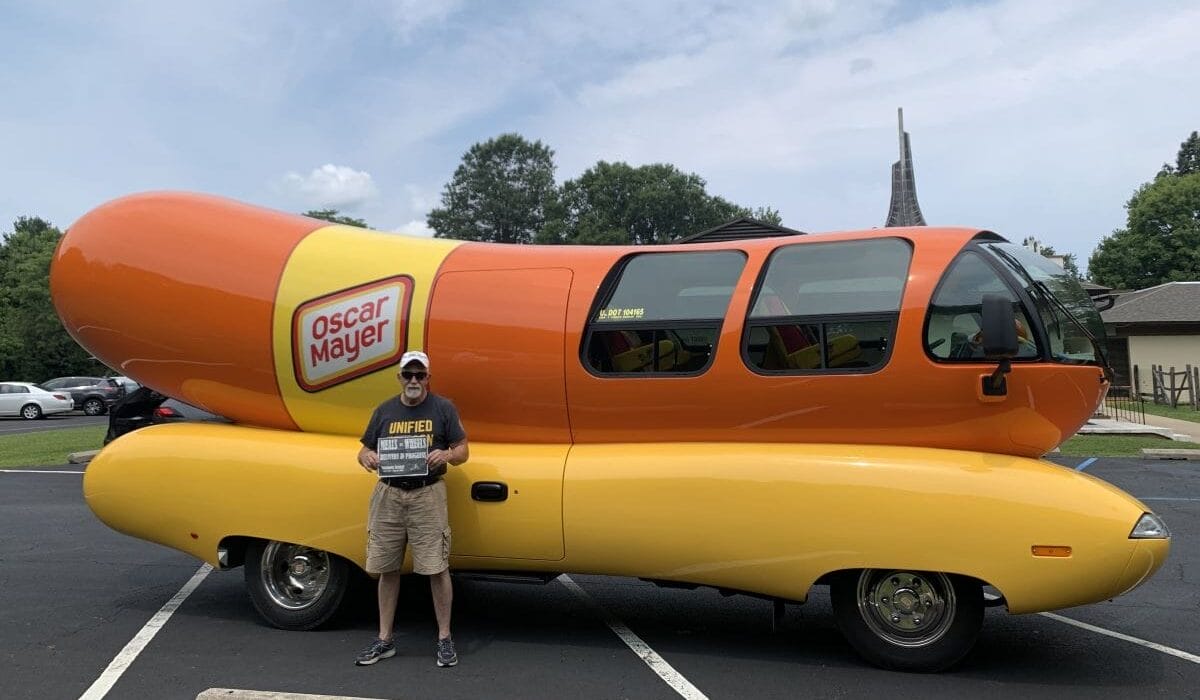Making Connections, One Meal at a Time

Meet Daily Point of Light Award honoree Ed Isbell. Read his story, and nominate an outstanding volunteer or family as a Daily Point of Light.
Some people find hobbies in retirement. Ed Isbell, 70, found volunteering. Six years ago, after a demanding career working for railroads and a transportation-logistics company, he retired. Wanting to stay active with his new unclaimed time, he started evaluating how he could help the people around him.
Ed coached with Special Olympics for many years, including regional basketball team Wilmington Wizards for the last five. Before Covid-19 concerns shut the program down, Ed also drove people to medical appointments with Friends in Service Helping (FISH). He continues to deliver pet food with the Society for the Prevention of Cruelty to Animals (SPCA) twice a month to people who have trouble getting out to buy their own.
The role that he spends the most time in is delivering food for Meals on Wheels. Ed delivers five days a week and goes above and beyond to be a light in his clients’ day whether it’s bringing in their mail, putting a trash can away or simply making sure they’re ok. Ed is a people person who values the connections he makes with the communities he serves.
What inspires you to volunteer?
When I was working, I was traveling some. Then, when I started working remotely in 2004, I was more or less dedicated to doing just that, because when you work out of your house, you tend to work a lot more. My wife said, “You can retire as long as you have something to do.” There’s only so much golf you can play, so it was after retirement that I began volunteering.
Tell us about your volunteer role with Meal of Wheels.
I show up around 10:30am and go to a couple of the local senior centers. They have a caterer that brings in the hot meals every day. One day a week, it’s a cold meal, something like tuna with bread to make a sandwich. We deliver between 10am and lunch. If I have a double route, I might be done at 12:30pm.

The route I did today was probably the longest with 18 meals and 14 stops. Some husband-and-wife deliveries get multiple meals, and one household gets three. Shorter routes are 10 or 12, some fewer. If somebody cancels, I usually pick up their route, too. I do double routes with anywhere from 22 to 30 deliveries two or three times a week. I want to do as much as I can to help out.
What inspired you to get started with this initiative?
Meals on Wheels always intrigued me, because I used to see pictures on TV, and I’ve known some people involved with Special Olympics who also did Meals on Wheels deliveries. They raved about it. I like that I can somewhat set my own schedule.
What’s been the most rewarding part of your work?
Some of the clients don’t have access to a lot of family. A lot of them are older with physical limitations. I’ve created really nice friendships with some of them as well as with younger people with physical disabilities who also depend on these meals.
I may be the only person they see all day, and I get a kick out of showing up at their door and presenting them with a meal every day. It’s hard for them to do anything physical, so I like to make sure that they’re getting everything that they need.
What have you learned through your experiences as a volunteer?
When I first started this, I was new to Wilmington. I knew that if I was out there delivering every day, I would learn the area pretty well, and I have. I’ve learned pretty much every route and don’t even need GPS anymore unless it’s a new client. I just enjoy the friendships and making sure they have good food. People truly appreciate it.
Tell us about future partnerships, programs or events that you are excited about.
Every year, we provide Thanksgiving meals for the people who can’t make one for themselves. I’ve helped for six years now. It’s only about five or six clients on each of these routes, but that’s the only Thanksgiving meal they’re going to get.

Why is it important for others to get involved with causes they care about?
I think it makes you a better person. You recognize that we should feel fortunate that we’ve had the life that we’ve had, and it’s of utmost importance to provide to those who are less fortunate. In everything that I’ve done — Special Olympics, Meals on Wheels, SPCA — the people I’ve interacted with don’t have a lot of what we have. We worked for 40 plus years and have a nice retirement, and now it’s time to give back.
Any advice for people who want to start volunteering?
You can use any search engine to look for volunteer opportunities in whatever city you live near, and just pick what’s good for you. Some people want to get involved with politics. My oldest daughter, goes to the polls and helps out on election days. That’s her way of giving back.
Find something that you think you would enjoy and give it a try. If you don’t like it, there are all kinds of other volunteer organizations that have different things you can do for them. Something that you really enjoy you’ll want to stick with for years. I plan on doing this until I’m at least 80. I’m going to just keep doing what I’m doing as long as I can drive.
What do you want people to learn from your story?
If you’re going to retire, and you want to do something with your life, volunteering is excellent. It doesn’t matter what it is as long as you’re contributing and making somebody’s life better. If I can bring an 80-year-old woman cat food who can’t get her own, and I see the happiness on her face, it makes me feel good that I’m helping.
Do you want to make a difference in your community like Ed? Find local volunteer opportunities.
